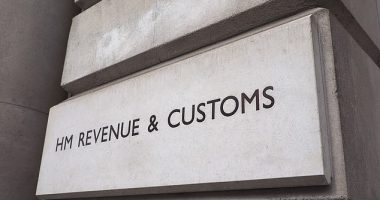ANNA Rozanska cleared her £32,000 debt in just 18 months by working two extra jobs, slashing her grocery bills and flogging her unwanted items.
The 29-year-old accountant got into financial trouble after “not being great with money” throughout her twenties.
She spent £7,000 to get a nose job in 2013, after bullies at school left her feeling insecure about the way she looked.
Anna said she originally just wanted to take out £4,000 to fund the surgery, but she took out more because she thought she would benefit from a lower interest rate on the bigger loan in the long run.
Shortly after, she then refinanced this £7,000 loan to £10,000 in order to pay for a new laptop and other luxuries.
She kept taking more and more money out over the next eight years, and didn’t keep track of how much in total she owed.
She only paid off the minimum payments every time.
Most of the loans were spent on trips of a lifetime – she took out £2,000 to fund a holiday to Las Vegas, £1,000 to go to Thailand, £3,000 for a trip to Los Angeles and San Francisco, and another £2,000 to go to Bali.
In 2019, when she was trying to buy a house, she realised how her borrowing had snowballed – and that it could stop her from getting a mortgage.
“It dawned on me when I was trying to buy a flat how problematic it was – mortgage lenders don’t like you to have a lot of debt,” she said.
Her parents gave her the full £20,000 she needed so she could put down a deposit for her £355,000 shared ownership flat.
They told her that she needed to pay £10,000 of it back. But she still owed £22,000 to the banks meaning she now needed to pay back £32,000.
“I was really grateful to my parents for giving me the opportunity to buy my flat – I definitely wouldn’t have been able to afford it otherwise if it wasn’t for them.
“It made me realise that I had to be way more sensible with my money.”
This huge amount of money hung over Anna’s head “like a big cloud”, she said.
She decided to completely overhaul her lifestyle to pay back the money as quickly as she could.
She boosted her £50,000 salary as an accountant by taking on two extra jobs in hospitality to help clear her debts more quickly, and ditched social outings to stay in and save money.
Within 11 months, she had completely paid off the £22,000 she owed to the banks.
It took her another seven months to pay off the £10,000 she owed to her parents.
The Sun sat down with Anna to see exactly how she turned her spending habits round.
Two extra jobs – earned £300 per month
Anna took up two extra jobs to get up to £300 extra per month that would go straight towards paying back her loans.
She took up bar and restaurant work with two different companies, and would sometimes be working four shifts a week on top of her 9-5 day job as an accountant.
“It was really hard working really long hours, but meant I could pay my debts off quicker,” she said.
By the end of 18 months, Anna had managed to raise a total of £2,100.
She also managed to put aside an average of £700 from her normal day job to go towards paying her debts – which raised £10,800 in total over the 18 month period.
Planning meals – saved £100 per month
By ditching pricey grub and planning her meals for the week, Anna managed to slash her monthly food bill in half from £200 to £100.
“I kept a food inventory of exactly what I had in my fridge, planned my meals and bought cheaper food,” she said.
“While I would do most of my food shopping at Sainsbury’s, I bought cheaper items and checked what the cost for the item was per 100g.
“I would buy things on offer, and went to Lidl and Aldi when I could too to drive down costs further.”
Checking out the yellow sticker aisles meant she could bag expensive fresh fruit for less too.
In total, she saved £1,800 in over 18 months by cutting back on grub.
Selling old junk – earned £2,500
Your unwanted clothes or household bits could be a valuable or sought after item for someone else.
Anna sold her old stuff she either didn’t use or want any more on eBay, Facebook Marketplace and Gumtree to raise an extra £2,500 to pay off her loans.
“The main items I sold off which went for a lot of money was my go-pro camera for £100, and an old wardrobe for £200,” she said.
“A lot of stuff I sold was smaller – I had lot of expensive clothes and shoes, and bags, like gymshark leggings that I would sell for up to £30.”
Pet sitting – earned £400
Anna signed up to a pet sitting service and would look after other people’s pets while they went on holiday.
She signed up two apps – Cat in a Flat and Pawshake – and would earn £10 per visit, earning a total of £400 over 18 months.
“It wasn’t a guaranteed income, but I love animals and it was a great way to spend my spare time and earn a bit more money too,” she said.
Cut out takeaways – saved up to £60
Takeaways are tempting to get, especially on a Friday or Saturday night – but it could soon turn into an expensive habit.
Anna was spending around £80 a month on deliveries, but cut back to ordering one or two each month as a special treat, saving her up to £60.
In total, she saved £880 from ditching pricey dinners.
“I was spending so much on meals out and ordering in takeaways, but I drastically cut back on this,” she said.
“Instead, I would go for a pizza from Sainsbury’s instead of buying a pizza from a local restaurant.”
How to cut the cost of your debt
IF you’re in large amounts of debt it can be really worrying. Here are some tips from Citizens Advice on how you can take action.
Check your bank balance on a regular basis – knowing your spending patterns is the first step to managing your money
Work out your budget – by writing down your income and taking away your essential bills such as food and transport
If you have money left over, plan in advance what else you’ll spend or save. If you don’t, look at ways to cut your costs
Pay off more than the minimum – If you’ve got credit card debts aim to pay off more than the minimum amount on your credit card each month to bring down your bill quicker
Pay your most expensive credit card sooner – If you have more than one credit card and can’t pay them off in full each month, prioritise the most expensive card (the one with the highest interest rate)
Prioritise your debts – If you’ve got several debts and you can’t afford to pay them all it’s important to prioritise them
Your rent, mortgage, council tax and energy bills should be paid first because the consequences can be more serious if you don’t pay
Get advice – If you’re struggling to pay your debts month after month it’s important you get advice as soon as possible, before they build up even further
Groups like Citizens Advice and National Debtline can help you prioritise and negotiate with your creditors to offer you more affordable repayment plans
Became a website tester – earned £40 a month
You can earn a little extra per month by signing up to schemes that pay you to become a mystery shopper, or to review services.
Anna signed up to User Testing, and reviewed and tested new websites that different companies had set up looking for feedback on.
She would get $10, around £8, per test and did around four to five tests per month – in total, she earned £440 over 18 months.
“It was really easy to do – I would do a test in my spare time, or while I was watching Netflix,” she said.
No travel costs – saved £1,440
From April to December last year, when the Covid crisis hit, millions of Brits – including Anna – were told to work from home.
Cutting the commute saved Anna a total of £1,440 – £160 a month – over that nine month period.
Racked up credit card points – saved £300
Credit card companies often flog schemes and offers to help you save money in order to tempt new customers in.
Anna signed up for an American Express credit card once her credit rating improved in the first half of 2020.
The company was offering a deal where if you spent £3,000 in the first three months, you would get £150 worth of Nectar points.
Usually, customers collect one loyalty point for every £1 at Sainsbury’s, which is worth 0.5p when you redeem it in store.
She used her card to pay for nearly all of her bills – including her weekly shop – to hit the minimum spend needed to get the points bonus.
She kept using her American Express card to get her points, and in total, bagged £150 worth of free groceries by cashing her points in.
Make sure you pay off your repayments on time – otherwise you could rack up interest fees that cancel out the benefits you get from using your card.
Moved to 0% transfer card
Switching to a 0% balance transfer card allows you to move over debts you already owe onto a new card – and you won’t pay interest on this amount for a set period of time.
Anna moved £8,000 of her debt onto one of these cards, paying a fee of £160 in order to do so.
This helped her to pay off her debt quicker without having to pay sky-high interest rates.
By paying her loans off early, she got a refund on the interest back, bagging her £450.
However, after your interest-free period is up, lenders will typically charge you between 15% and 20% interest – so you’ll need to make sure you pay your debt off in time otherwise you’ll be whacked with high rates.
Ditched nights out – saved £3,600
Anna would splash her cash on nights out and drinks with her pals – but that all changed when she began to tackle her debt.
It meant that she lost “a few friends along the way”, she said, as she said no to nearly all social outings.
But she said it was worth it in the end, saving £3,600 over an 18 month period.
Videos from YouTube – earned £4,200
By the time she had paid off her £22,000 debt to the banks, Anna had set up a YouTube channel dishing out her money saving tips and explaining to viewers how she managed to get out of debt.
She managed to rake in £4,200 after tax from her videos – which all went towards paying her parents back.
Here’s how another savvy shopper cleared his £12k debt by reselling car boot and charity shop finds.
Single mum-of-three Lynn Beattie saved nearly £8,500 in just six months by switching supermarkets and buying Poundland make-up.
Here’s 20 money saving hacks that could make you hundreds of pounds richer.














